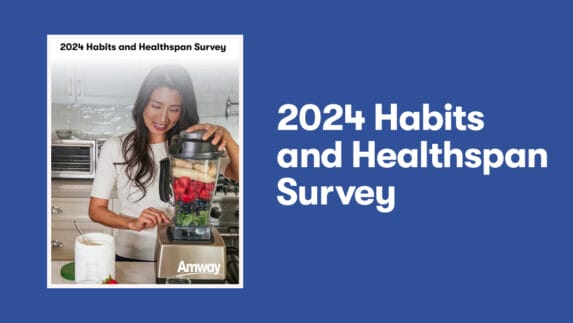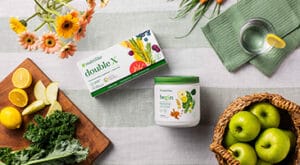If there’s one thing we can always count on, it’s change especially when it comes to the seasons. From iced coffee to hot chocolate, flip flops to boots, and sun tans to dry skin, when the temperatures drop, you need more than a puffy coat to be prepared. Follow these tips from our ‘seasoned’ scientists to better prep your body for seasonal changes.
Cabin Fever (literally)
Colder temps force us indoors, with others and all of our collective germs, often resulting in a cold, fever, or worse. “As school starts and the holidays begin, we spend more time inside and in contact with more people,” says Katie Throop, a scientist at Nutrilite. She suggests washing hands with regular soap under warm running water as one of the best ways to prevent illness and the spread of germs to others. “And for an added boost, supplement with Echinacea to support your body’s natural resistance and provide some additional immune support.”
Vital Vitamin D
The sun’s rays do more than keep you warm. Sun helps your body produce a natural dose of Vitamin D and maintain normal immune system function. Yet, less daylight hours make adequate vitamin D levels difficult. Throop suggests getting a sunny vitamin D boost in winter months with food and supplementation. “Try to incorporate good Vitamin D food sources into meals, like fatty fish such as wild salmon, tuna, mackerel, or mushrooms and eggs,” she says, “Vitamin D fortified foods such as milks and juices count too.” If you struggle to get enough Vitamin D from food alone, a supplement can be an efficient and convenient alternative.
A Moisture Drought for Skin
Colder temps mean less humidity and less moisture for skin. “When skin’s barrier (the outermost layer) cannot hold in water effectively, you get excessively dry skin that can cause redness, scaling, sensitivity, and even fine lines and wrinkles,” says Amway Scientist, Penny Anderson. Combat winter dryness by upping the frequency and adding an extra layer of hydration and moisturization into your skincare regime. “Find a moisturizer with ceramides or omega rich oils like the Artistry Hydra-V™ Replenishing Moisture Cream to help restore hydration while strengthening skin’s natural barrier.” Penny suggests swapping face and body lotions with richer creams, using moisturizer under makeup for the day, and moisturizing right after a shower or bath to improve absorption. Don’t forget gloves, hats, scarves and coats outside to help reduce skin’s exposure to the drying environment too!
Winter Blues
Is it possible to “weather-proof” your emotions during seasonal changes? The American Heart Association says you can with exercise! Nutrilite Scientist Kerry Gran helps break down the research to explain why moving your body is good for your mood. “Exercise releases endorphins and other natural brain chemicals that can enhance your mood – which can get out of balance in winter months,” she states. “It can also change your mental focus and can break a cycle of negative thinking. Plus, exercise can be social and provide opportunity to meet new people.”
Working out on a regular basis also helps people fall asleep quicker and sleep better. And sleep is important when the body is going through changes. The World Health Organization recommends 150 minutes per week of moderate-to-vigorous physical activity, but the good news is any type or amount of exercise is beneficial (walking and stretching totally count!).
Add these four tips to your seasonal routine, make sure your skincare and supplement game is on point, and don’t let the winter weather wear you down!
References:
Wright, S. “Essential Fatty Acids and the Skin” British Journal of Dermatology (1991) 125, pg. 503-515
Rawlings, A., Matts, P.,”Stratum Corneum Moisturization at the Molecular Level: An Update in Relation to the Dry Skin Cycle”, Journal of Investigative Dermatology, 2005, 124:1099-1110
Chekroud SR, et al. Association between physical exercise and mental health in 1·2 million individuals in the USA between 2011 and 2015: a cross-sectional study. Lancet Psychiatry. 2018 Sep;5(9):739-746.




